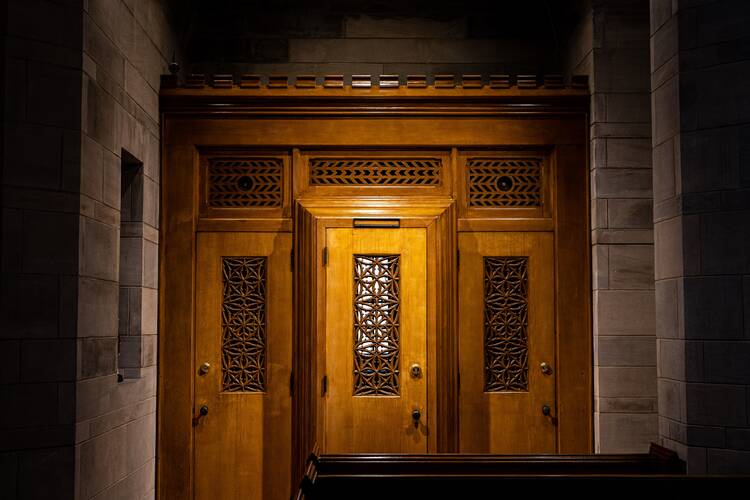Sin, hell and scrupulosity: How to repent during Lent (and how not to)
A Reflection for Friday of the First Week of Lent
Find today’s readings here.
“You have heard that it was said to your ancestors,
You shall not kill; and whoever kills will be liable to judgment.
But I say to you, whoever is angry with his brother
will be liable to judgment,
and whoever says to his brother, Raqa,
will be answerable to the Sanhedrin,
and whoever says, ‘You fool,’ will be liable to fiery Gehenna.” (Mt 5:21-22)
If you are angry with your brother, you are subject to judgment; if you call someone names, you are liable to “fiery Gehenna.” This doesn’t sound much like the God of mercy and grace whom we turn to for forgiveness.
But Jesus is simultaneously allowed to remind us that our actions have real consequences. He is 100 percent mercy, and he is 100 percent justice; these two go hand-in-hand and do not contradict each other, because God cannot contradict himself. We cannot get to heaven if we are wicked or have turned away from virtue, as the first reading mentions. It is an eternal process and an everyday struggle to do what is right, to be reconciled with others before we face the judge, or the Judgment. Jesus’ warning is just—actions have consequences—but it’s also merciful—he gives us a way to be happy with him in Heaven.
Today’s Gospel can lead many of us into scrupulosity, when we think that anything we do is a sin. After all, Jesus says that anyone who is even angry with his brother could be sent to Hell! Now, I don’t have any siblings, but I know that everyone has been angry with her brother at one time or another. Does that mean we’re all destined for Hell, or that we should only be kind and supportive of everyone around us, 24/7/365? No, and no. Jesus was angry at the moneychangers, so obviously not all anger is sinful. It’s important to develop a rightly ordered conscience, one that will stop us from falling into sin but not prevent us from living a good life.
Let us remember Lent is a time of repentance from sin, not of berating yourself about every sin you’ve committed.
Being angry at your brother, or calling someone a name like “fool” or “empty-headed” (which is the likely translation of the word from which “Raqa” derives), is not something that we should do every day, but these words and thoughts are sometimes justified. Jesus called the Pharisees hypocrites, and Paul called the Galatians stupid. Both of these were necessary, as they were threatening their own eternal salvation by their deeds.
And even with all this “do not,” “shall not” talk, there is hope for us in the first reading: “If the wicked, turning from the wickedness he has committed, does what is right and just, he shall preserve his life” (Ez 18:27). It is an eternal promise that we, who, through our concupiscence, are so often wicked, can still be saved, no matter what we have done or how many times we have done it, by turning away from it.
This Lent is a time to focus on eradicating the wicked things we do, which includes name-calling and unjustified anger, turning toward virtuousness. But at the same time, let us remember Lent is a time of repentance from sin, not of berating yourself about every sin you’ve committed.
Get to know Jill Rice, O’Hare Fellow
What are you giving up for Lent?
My issue the past few Lents has been giving myself too many things to do and then being unable to do any of them. So this year I’m trying to do a little less—five minutes of silence a day, not complaining and fasting on Fridays. Have I succeeded at any of these? Not yet, but I’m trying.
Do you cheat on Sundays?
I’m open to having “cheat days” but since I often try to add prayer or avoid sin, it doesn’t seem appropriate to cheat on Sundays.
Favorite Easter art/memory
At Easter Vigil, for the third psalm chant, the choir at my church will sing a song called “Horse and Rider.” (I have never been able to find the same version of it on YouTube or Spotify, but here is a recording I did of it in 2019, with me singing along as a bonus.) It is the same content as the third reading: Moses and the Israelites are crossing the Red Sea; the Egyptian “horse and rider have been cast into the sea.” It’s a hymn that starts quiet, then builds and builds; its tune and rhythm remind me of “Hava Nagila,” and I almost feel like we’re there with the Israelites as they “sing to God a song of glory”—it’s an energetic part of a long and sometimes solemn service.


No comments:
Post a Comment